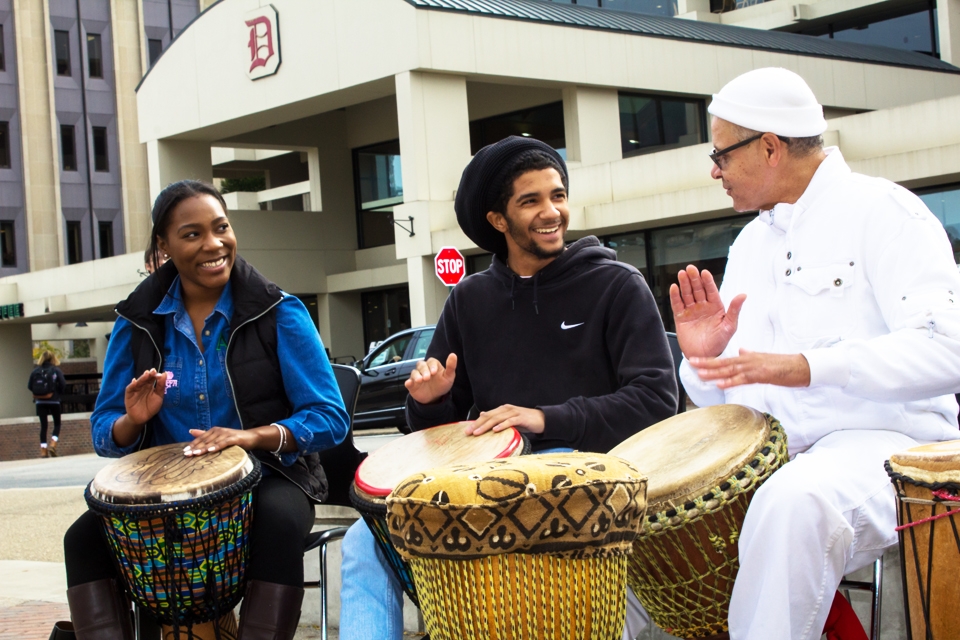

By Timothy Rush | Staff Columnist
The U.S. has undergone rapid social change over the course of the last two decades, and while things are far from perfect, strides have been made toward inclusion. Progress has been made to include members of the LGBTQ+ community, but recently, that same progress is co-opted by companies and corporations to make a profit.
Take so-called “rainbow capitalism,” which refers to the market shift to cater to the LGBTQ+ community, wherein even large corporations like banks become sponsors of gay pride parades and your local Hot Topic is selling gay pride merchandise. The greatest sign of this is the aptly named “Proud Whopper,” released for a limited time by Burger King in 2014 for the San Francisco Pride Parade. This burger was no different than other Whoppers, but it came with a rainbow packaging and a nice feel-good message, “We are all the same.” The point of this is very simple: spend little to no money to get a progressive message. Now, your gimmick has become the newest trend.
Civil rights and black liberation movements are not strangers to this, either, with their agendas being taken and resold in easily consumable merchandise. Not even feminism is immune to the market forces seeking to capitalize on those who wish to show off their support for women’s rights. The market is taking things that are even contrary to its current existence, like communism and anti-colonialism, and reverse engineering them to serve its benefactors a profit.
Now we come to a point where we must answer two questions. First, is this is even a bad thing? Second, if it is bad, how can we, as consumers, stop it or cope with it?
The first is very nuanced and depends largely on your side of the political aisle. Neoliberals may love this idea because the market is great, while socialists might hate it because the market is bad. I’m not writing this to praise or shame capitalism, but to raise awareness to the negatives of such a practice and why it is ultimately negative for a progressive society.
Slacktivism is the first part of this. People can now excuse going to actual activist events because they went to the highly capitalized pride parade sponsored by Nissan, or instead of engaging with people in their lives they just wear their $25 T-shirt from Spencer’s. Instead of becoming activists — conduits for social change — they just become mindless consumers to a market that has deemed their beliefs as profitable.
Going to real marches and having those awkward conversations are both done less frequently now that the market has a convenient way to just show off you like LGBTQ+ rights for an awesome price. Why do the work when you can just pay to feel good about yourself?
You’re a real activist when you tell your racist relative that they’re wrong. A real activist doesn’t just go to Pride every year; they write their representatives in Congress to continue the fight that is still not won for equal rights. Real activism is not a hashtag on Twitter; it’s voting and engaging with people to change policies. Sure, pride parades are fun, but remember that it’s not a substitute for real social change.
Let’s also remember where most of those things come from and what they do. The Proud Whopper is still a greasy sandwich, and any health expert will tell you to avoid it. That shirt with the nice message about love and tolerance that you bought for $30 was more than likely made in a sweatshop by cheap and abused labor. Companies still do all the bad things they do, but now they can do it under the mask of being progressive.
So, what can be done about it? First off,don’t fall into the sway of slacktivism as a result of this practice. Activism can be as grand as joining a march or a campaign, or as small as talking to your family and friends and taking time to write your representative in Congress. When it comes to activism, literally anything helps, but you still have to do something.
Second is get informed about the places you buy from. Instead of buying your pride or feminist T-shirt from a big company like Spencer’s or Hot Topic, look online or locally for small businesses and artists. Not only is it often cheaper, but you know where the money is going, and your new shirt will be much more unique. Instead of going to Pride sponsored by Walmart, organize an event on your college campus or neighborhood. Locally organized events will often redistribute the money to the community, help local businesses and go much further in inspiring pride when your community comes together to celebrate it.
College students especially are in a unique position to make grand social change in even the smallest of communities. Duquesne University hosts several on-campus organizations that one can join up with to help make the change they want to see. If you want to help raise awareness and empower yourself and your community to combat racial injustice, look into such organizations as the Ebony Women for Social Change or Duquesne’s chapter of the National Association for the Advancement of Colored People.
Gender Forum and Duquesne Pride (Lambda) exist for feminist and LGBTQ+ advocacy, respectively. The College Democrats, College Republicans and Democratic Socialists of America are on campus if you want to get more political. And if you don’t see one that fits what you’re looking for, Duquesne is always looking for new organizations to form and take part in the campus community.




